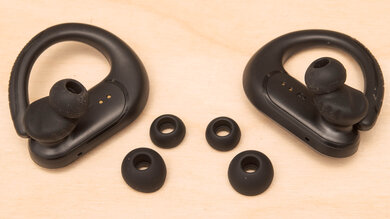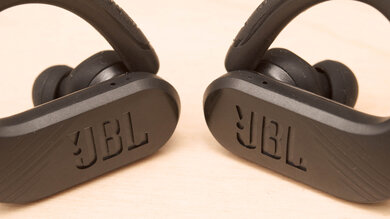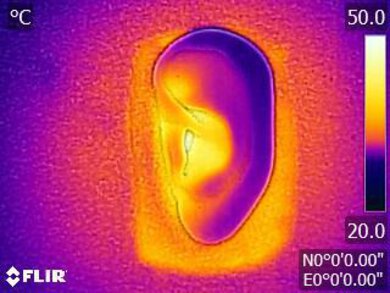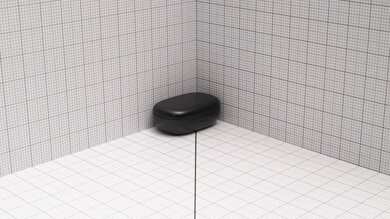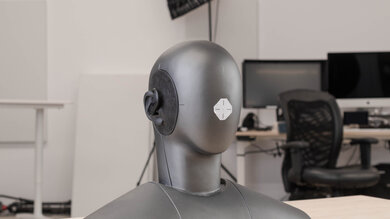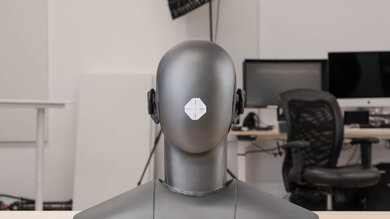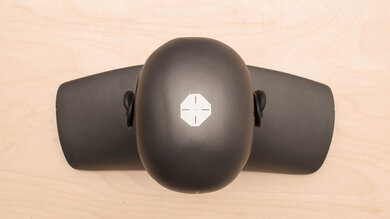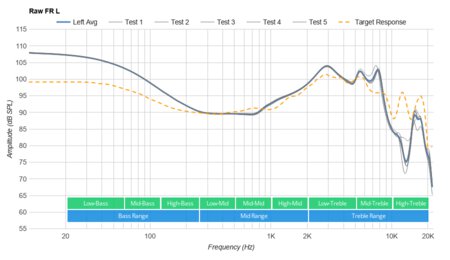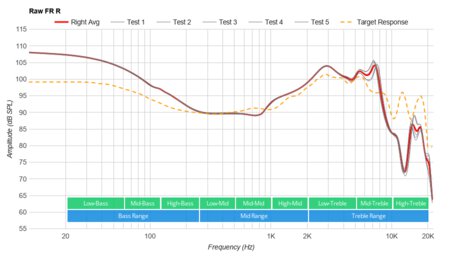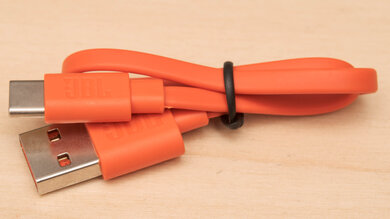The JBL Endurance Peak II True Wireless are sports-oriented headphones with a distinctive ear-hook design that helps them stay on your ears during your workouts. Their bass-heavy sound profile adds an extra thump and punch to your favorite music. While they don't have an ANC feature, they do an amazing job passively isolating against background noises, so you don't hear chatter from people working out around you in the gym. Unfortunately, they may not be comfortable enough to wear for long listening sessions, especially if you have smaller ears. However, they're very portable, and their charging case makes it easy to recharge when you're on-the-go.
Our Verdict
The JBL Endurance Peak II are reasonable for neutral sound. Their balanced, neutral mid and treble ranges can reproduce vocals and lead instruments clearly and accurately. However, the overemphasis in the bass range may be overwhelming for some listeners. Unfortunately, there are no sound customization features available.
- Amazing frequency response consistency.
- No sound customization features.
The JBL Endurance Peak II are very good for commute and travel. Their portable design makes it easy to bring them on-the-go, and they can passively isolate against lots of background noise, including the sound of bus and plane engines or chatter from other commuters. While their 6.6-hour continuous battery life may not last through long international flights, their portable charging case offers around four extra charges. Unfortunately, they may feel uncomfortable in your ear after long listening sessions.
- Amazing noise isolation.
- Well-built, portable design.
- May feel fatiguing after long listening sessions.
The JBL Endurance Peak II are impressive for sports and fitness. These lightweight sports-oriented in-ears have a very stable fit thanks to their ear-hook design, so they shouldn't fall out of your ears during your workout. They also have an IPX7 rating for water resistance, though we don't test for this. They're well-built and easy to bring on-the-go, too. However, they may start to feel uncomfortable after long listening sessions.
- Well-built, portable design.
- Impressive stability.
- May feel fatiguing after long listening sessions.
The JBL Endurance Peak II are fair for office use. They don't leak a lot of noise, and their amazing noise isolation can block out the sound of coworkers chatting nearby. Their 6.6-hour continuous battery life may not last through your 9-5, but their portable charging case has a couple of extra charges to get you through your day. Unfortunately, they can start to feel fatiguing in your ears after long listening sessions.
- Amazing noise isolation.
- May feel fatiguing after long listening sessions.
The JBL Endurance Peak II aren't compatible with Xbox One or PS4 consoles. You can pair them with Bluetooth-enabled PCs, but their latency is likely too high to be suitable for gaming.
The JBL Endurance Peak II can't be used wired, so they aren't suitable for wired gaming.
The JBL Endurance Peak II are adequate for phone calls. Their integrated microphone can transmit your voice clearly and intelligibly, though it may also sound a bit thin. They can also block out a lot of background noises so you can focus on your call. However, due to their disappointing noise handling performance, they're better suited for making phone calls in quieter environments.
- Amazing noise isolation.
- Sub-par noise handling.
Changelog
- Updated Mar 20, 2023: We've added a comparison between these headphones and the JBL Endurance Peak 3 True Wireless in App Support.
- Updated Nov 25, 2021: Converted to Test Bench 1.5.
- Updated Dec 21, 2020: Review published.
- Updated Dec 15, 2020: Early access published.
Check Price
Differences Between Sizes And Variants
The JBL Endurance Peak II come in several different color variants, including 'Black', 'White', 'Blue', and 'Coral'. We tested the 'Black' variant, and you can see the label for our model here. We expect the other color variants to perform similarly.
If you come across another version, let us know in the discussions so we can update our review.
Popular Headphones Comparisons
The JBL Endurance Peak II are great truly wireless headphones for sports and fitness. Thanks to their ear-hook design, they have a more stable fit than other truly wireless in-ears. They're the next generation of the JBL Endurance Peak True Wireless, and their overall performances are very similar, but they have a better noise isolation performance, a longer continuous battery life, and a better microphone recording quality. However, their bass-heavy sound profile isn't ideal for all listeners, and they don't have any sound customization options.
See also our recommendations for the best headphones for running and working out, the best wireless earbuds for running, and the best wireless headphones.
The Skullcandy Push Active True Wireless are more customizable than the JBL Endurance Peak II True Wireless. While both headphones are well-built, the Skullcandy have a companion app that allows you to customize their sound profile to your liking via their graphic EQ and presets and turn on smart commands. They're more comfortable and have a more neutral sound profile, which some users may prefer, and their continuous battery life is much higher. However, the JBL can isolate you from more ambient noise, and their build is certified IPX7 for water resistance, which is higher than the Skullcandy's IP55 rating.
The Jaybird Vista Truly Wireless are better headphones for sports and fitness than the JBL Endurance Peak II True Wireless. The Jaybird are better-built and more comfortable. Their default sound profile is more neutral, and they have lots of sound customization options thanks to their parametric EQ and presets. However, the JBL have better noise isolation and they leak less sound.
The JBL Endurance Peak True Wireless and the JBL Endurance Peak II True Wireless are very similarly-performing headphones, but the newest edition has a few improvements. The Peak II have a better noise isolation performance, a longer continuous battery life, and a better microphone recording quality. Their sound profile is a bit more bass-heavy, which some listeners may prefer. However, the Peak have a better charging case.
The Beats Powerbeats Pro Truly Wireless are somewhat better headphones for sports and fitness than the JBL Endurance Peak II True Wireless. The Beats are more comfortable, their continuous battery life is longer, and they have a more neutral sound profile. However, the JBL have a better noise isolation performance, and they leak less sound. Some listeners may also prefer the JBL's bass-heavy sound profile.
Test Results

The JBL Endurance Peak II have a distinct sports-oriented design that's similar to the JBL Endurance Peak True Wireless. They have dense, rubberized earbuds and thick ear hooks for stability. You can get them in 'Black', 'White', 'Blue', and 'Coral'.
The JBL Endurance Peak II are reasonably comfortable. They don't go too deep into your ear, which is nice. Also, the bendable wire on the ear hook lets you adjust the headphone based on your preferences. However, they're a bit bulky, and they can feel uncomfortable after long periods of use. Also, since you can automatically turn them off by moving the ear hook to touch the back of the headphones, listeners with small ears may accidentally turn off the headphones when trying to tighten their fit, which is inconvenient. If you're looking for more comfortable truly wireless headphones, try the JBL Live Pro+ TWS True Wireless or the Skullcandy Push Active True Wireless.
These headphones have passable controls. You can tap either bud to answer/end a call, and double-tap them to decline a call. Tapping the left bud once skips ahead to the next track while tapping twice skips backward to the previous track. Tap and hold either bud for two seconds to mute/unmute the microphone. You can slide up on the right bud to turn the volume up and down to turn the volume down. Tap the right bud once to play/pause, and double-tap to activate the voice assistant. However, the touch-sensitive controls don't have any audible feedback, and the sensitive surface is very small. As a result, when attempting to adjust the volume, sometimes the buds play/pause music instead.
The JBL Endurance Peak II are remarkably portable. They're small and lightweight, and they should fit easily into your pocket or bag. There's also a portable charging case to help protect them when you're on-the-go.
The case is decent. It's mostly made of plastic, but it doesn't feel quite as solid and durable as the materials used for the JBL Endurance Peak True Wireless' case. There's an LED light to show the battery level, and a locking mechanism to keep the case closed.
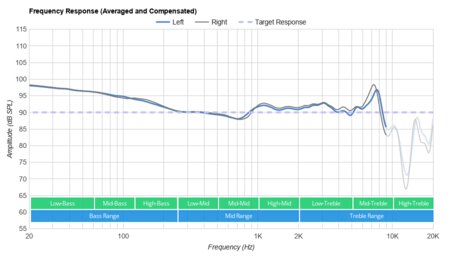
The JBL Endurance Peak II have a bass-heavy sound profile. The extra thump and punch in the bass range is suitable for listening to bass-heavy music genres like hip-hop and EDM. The rest of the range is quite flat and balanced, so vocals and lead instruments are clear and present.
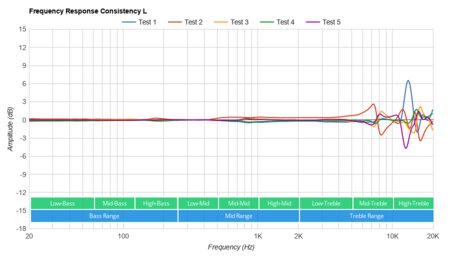
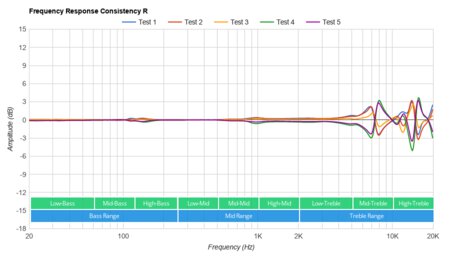
These headphones have excellent frequency response consistency. Once you get a proper fit and seal, you should be able to get consistent bass and treble delivery each time you use them.
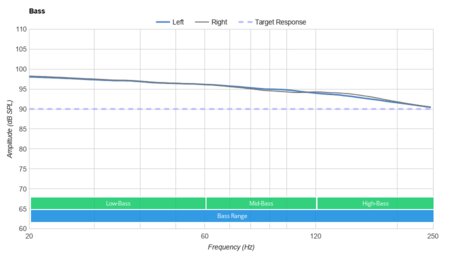
These headphones have fair bass accuracy. The entire range is overemphasized, so audio has an extra thump and punch suitable for bass-heavy genres like EDM.
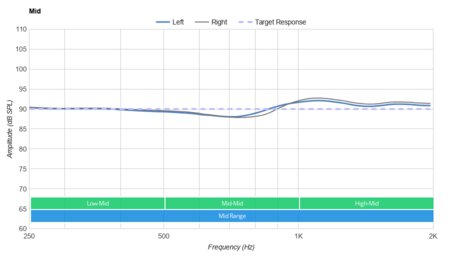
These headphones have superb mid accuracy. The entire range is flat and balanced, so vocals and lead instruments are clear and present in the mix.
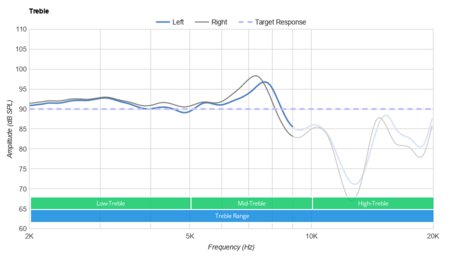
The JBL Endurance Peak II have very good treble accuracy. Vocals and lead instruments are clear and detailed. However, the overemphasized mid-treble can make sibilants like cymbals piercing or painful.
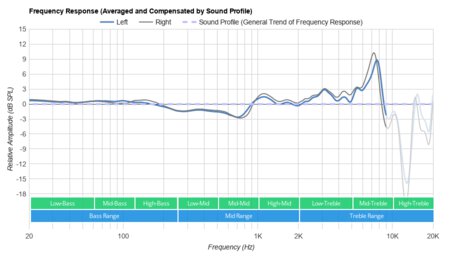
The JBL Endurance Peak II have good peaks and dips performance. The slight dip across the low-mid and mid-mid ranges nudges vocals and lead instruments towards the back of the mix. The slight peaks in the high-mid and low-treble can make those same instruments a little honky or bright. The peak in the mid-treble makes sibilants sound piercing.
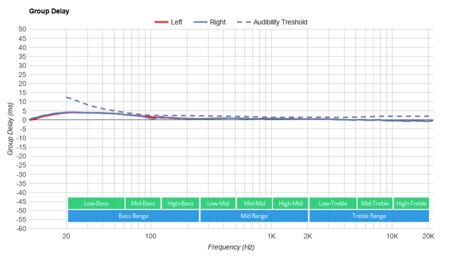
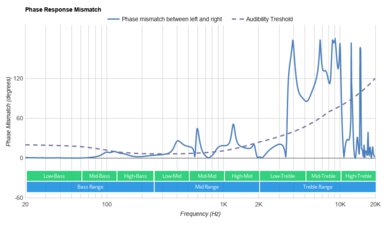
These headphones have excellent imaging. Their weighted group delay falls below the audibility threshold, resulting in tight bass and transparent treble. Also, the L/R drivers of our unit are well-matched in amplitude, phase, and frequency response. As a result, objects like voices and instruments are accurately placed and localized within the stereo image. However, these results are only valid for our test unit, so your experience may vary.
Like most in-ear headphones, they have a terrible passive soundstage performance. By design, they bypass the outer ear, which is one of the key components in creating a speaker-like soundstage. Instead, the soundstage is perceived as small and located within the listener's head. Their closed-back design means that their soundstage doesn't feel as open as that of open-back headphones like the Apple AirPods (2nd generation) Truly Wireless.
These headphones don't have any virtual soundstage features.
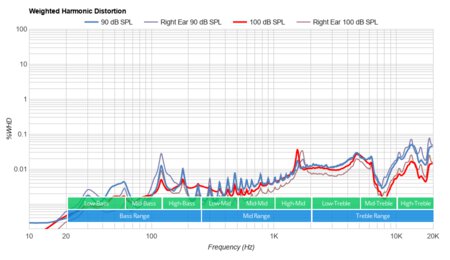
These headphones have an amazing weighted harmonic distortion performance. Even at higher volumes, audio reproduction is clean and pure.
These are the settings we used to test these headphones. Our results are only valid when using these settings.
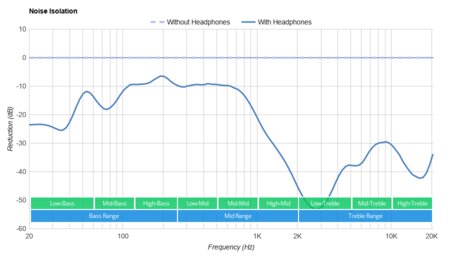
The JBL Endurance Peak II have amazing noise isolation. They don't have an ANC feature, but they can passively isolate against a lot of background noise. They should be able to block out some bass-heavy background noises like bus and plane engines, as well as higher-frequency sounds like people talking nearby and the hum of an AC unit.
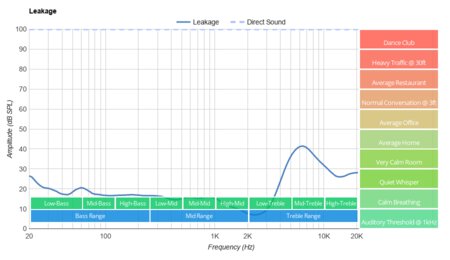
These headphones have an outstanding leakage performance. Escaping audio sounds very thin, and it isn't very loud. You can listen to your audio at loud volumes without really bothering those around you.
The JBL Endurance Peak II have an integrated microphone.
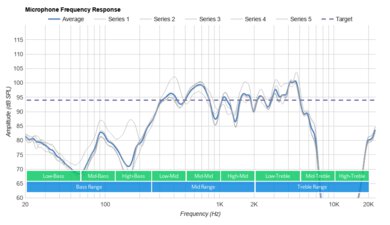
The microphone's recording quality is satisfactory. Your voice doesn't sound very deep or full-bodied, but whoever's on the other end of the line should be able to understand you.
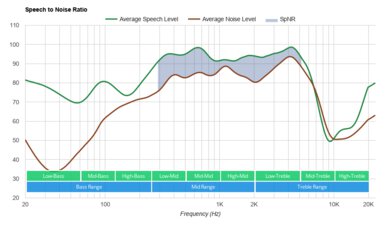
The microphone has a middling noise handling performance. It struggles to separate your voice from background noise, even if you're calling from a moderately noisy environment like a busy street.
The JBL Endurance Peak II have a decent battery performance. They only last 6.6 hours off of a single charge, which may not last through your 9-5 workday. Fortunately, they have an auto-off timer to help conserve battery life, and you can automatically turn them off by moving the ear hook to touch the back of the headphone. Also, you can listen to audio using one earbud while the other charges, which is convenient.
These headphones don't have a companion app. However, if you're looking for app support, you'll want to take a look at their predecessor, the JBL Endurance Peak 3 True Wireless, instead.
The JBL Endurance Peak II have reasonable Bluetooth connectivity. They don't support NFC or multi-device pairing, which can be disappointing if you switch your audio source often. Their latency is likely too high to be suitable for watching videos or gaming. However, some apps compensate for latency, so your real-world experience may vary.
These headphones are Bluetooth-only.


